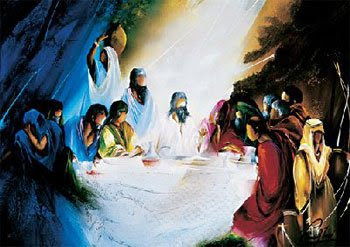“Blessed is she who
believed”
 It is
interesting how sometimes discoveries or insights happen because of an accident
or mistake. This is what happened to me;
I once had such an insight which really came about more through a mistake on my
part.
It is
interesting how sometimes discoveries or insights happen because of an accident
or mistake. This is what happened to me;
I once had such an insight which really came about more through a mistake on my
part.
A number of
years ago I formed part of our Community in Tunisia, where we Salesians
run a school for seven hundred children
all of whom are Muslims, including the teaching staff. Being in a Muslim
country, there was no possibility of even mentioning the name of Jesus.
Therefore a title like Mary Help of
Christians may seem out of place in such a context. Tunis is also a French
speaking country and the title Mary Help of Christians is translated as Marie Secours des
Chrétiens.
Now here is
where my ignorance in French came in. The word Chrétiens,
sounds very much like the word Credenti
in Italian which means believers. I
used to say to myself what a wonderful idea to express the title Mary Help of Christians as Mary
Help of Believers. For indeed we are all believers, Muslims and Christian
alike, in the one true God and Mary helps us to deepen our faith. The challenge in today’s world is not so much
as the clash of civilizations or struggle between different faiths, but rather
the struggle against the systematic onslaught
by atheistic secularism seeking to obliterate any reference to God.
So Mary is
truly a Help to those who believe. So many of our young people, when they
encounter this secular and materialistic environment, are taken over. In the
gospels, we see Mary being greeted by Elizabeth: “Blessed is she who believed that what the Lord has said will come
true.” Lk1:45 She is the first one to believe, to ponder these things in her
heart. It is because of his disbelief
that Zechariah was struck dumb. Our lack of faith also makes us unable to
express ourselves, strikes us dumb and we find ourselves limited in expressing
and communicating ourselves. We on our part very often have to struggle in our
faith, a struggle so well expressed in the Gospel “Yes Lord I do believe; help my unbelief.” Mk9:24
 But if we do have faith, we can with Mary let our souls sore
high and proclaim with her: “My soul
magnifies the Lord”. Lk1:46
But if we do have faith, we can with Mary let our souls sore
high and proclaim with her: “My soul
magnifies the Lord”. Lk1:46
Company
Motto
Many companies and businesses nowadays have a mission
statement, a short phrase that captures what the company is all about. The
phrase is usually short and catchy, easy to memorize. In its simplicity it
communicates to all, both consumers as well as workers, reminding them what
their purpose is all about.
I would like to suggest that Don Bosco has given us such
a mission statement and we may not realize it. It has been staring us in the
face. What is this statement? Some identify it as ‘Honest citizens good
Christians’. This is indeed very true but it talks of what we want to achieve
in our students, and does not touch on what we ourselves are called to be.
No, our mission statement given to us by Don Bosco is a phrase that has been staring us in the
face. And this is Help of Christians.
Yes Mary Help of Christians is a
personification of our Salesian Charism, our Salesian vocation, of our Salesian
identity. In Mary we see what are called to be and do. We are called to be a
help to all the young people that we meet to grow in their faith. This would
involve sharing our faith journey, at times our own struggles and doubts.
General Chapter XXIII was dedicated to this theme – Educating young people to the Faith.
Mary is the Help; she cannot but not be actively involved. Her immediate and
spontaneous reaction has been to set out in haste to help Elizabeth in her
need. At Cana she cannot but observe that they lacked wine and she could not
but intervene.
We too are called to be a help, and in Mary we find a model. Devotion to Mary help of Christians will help us to grow and be affirmed in our vocation. As the Immaculate one she reminds of our consecration giving ourselves totally to God. As Help of Christians she reminds of the zeal we have to have for souls. Da Mihi Animas.






